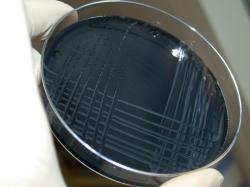Poultry Industry Announces Salmonella/Campylobacter Reduction Conference
October 7, 2010 | 2 min to read

The U.S. poultry industry is reacting to stringent new performance standards proposed by the U.S. Department of Agriculture Food Safety Inspection Service (USDA/FSIS) aimed at reducing Salmonella and Campylobacter.
The 2010 goal of USDA/FSIS is to significantly reduce the positive rate for Salmonella, and to start testing for Campylobacter.
To help the industry, the North American Meat Processors Association (NAMP), the National Chicken Council (NCC), the U.S. Poultry & Egg Association (USPOULTRY), and Auburn University have organized a “Salmonella and Campylobacter Reduction Conference” during the International Poultry Exposition, January 26-28, 2011, in Atlanta, GA. The conference will be held at the Georgia World Congress Center from 8:30 am until noon on the 26th and 27th.
Dr. Dan Engeljohn, Acting Assistant Administrator of the FSIS Office of Policy and Program Development, will be the leadoff speaker the first day. For more information about the other speakers, schedule, and to register online, go to www.IPE11.org.
NAMP, NCC, USPOULTRY and Auburn University are also partnering on a first-ever industry survey of poultry processing plants to determine what they are using in first and second processing to reduce or eliminate these pathogens. That survey is underway now; results will be released at the conference.
Announcing the Conference, John Starkey, USPOULTRY President, said “Pathogen reduction has been a priority focus of the poultry industry since adoption of HACCP programs, and significant strides have been made in reducing pathogens on raw poultry products. The challenge before us now is to continue this progress efficiently and effectively. To help our industry achieve the new goals, this workshop will bring together industry professionals, government, and academia to discuss changes in industry practices and to share updates on research and policy initiatives.”
Stephen Pretanik, NCC Director of Science and Technology said, “I am looking forward to seeing the results of the pre-conference industry survey of current industry practices to control Salmonella and Campylobacter which will be presented at the conference. The survey results and the presentations addressing the importance of bio-mapping, validation and HACCP approaches in reducing pathogens in first and second processing will help our industry meet these new challenges.”
NAMP Executive Director Phil Kimball noted: “It is extremely important that poultry establishments understand the changes and the best practices to achieve the new standards.”
“This first-ever partnership by NAMP, NCC, USPOULTRY and Auburn University joined by leading trade media and corporate sponsors, will help the industry validate and identify systems and procedures for controlling Salmonella and Campylobacter in poultry,” he continued.
FMC Spectrum, Morris & Associates, and NPC are conference sponsors. Trade media sponsors include Meat & Poultry and Watt Poultry USA.
Source: U.S. Poultry & Egg Association
